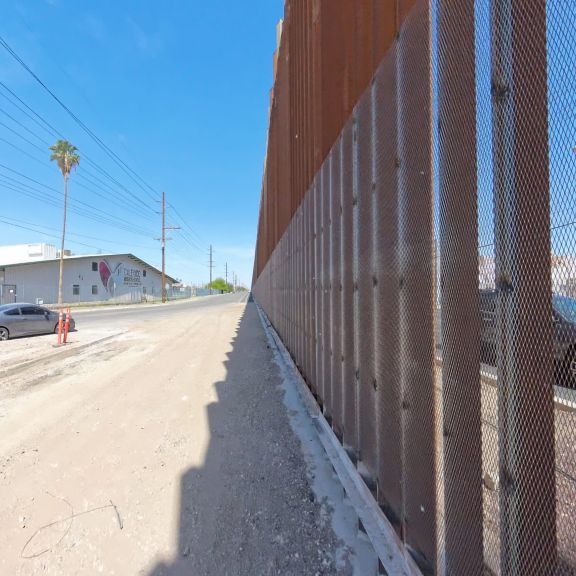
“Narcos”, “El Chapo” or “Queen of South” are only a few examples of drug-related TV series made in recent years. Just like the real criminals, the fictional drug barons engage in money laundering, assassinations or smuggling heroin across borders. Juan Pablo Escobar believes that these productions inspire thousands of young people to follow in the footsteps of his father, Pablo Escobar – Colombia’s most notorious criminal.
My father, Pablo
TV series such as “Narcos” and “Pablo Escobar: El Patrón del Mal” produced by Netflix have recently become hugely successful. They are tell the story of the infamous ringleader of the Medellin cartel.
Pablo Escobar began his criminal career with stealing cars. Thanks to smuggling drugs to different countries in Latin America and the United States, he soon became one of the richest people in the world. “The cocaine king”, as he was called, led a cartel which was in possession of planes and ships. Escobar became the member of Colombia’s parliament in the 70s and 80s, when his gang-members bribed government officials and executed the ones unwilling to cooperate. It is believed that he is responsible, among other things, for killing three Colombia’s presidential candidates and blowing up a plane with 110 people on board.
At the same time Escobar tried to act like a modern-day Robin Hood, sponsoring a lot of social initiatives, founding hospitals or almshouses. In 1991 Escobar gave himself up to the Colombian government, fearing his life was threatened by a competitive gang. He was, however, allowed to remain under house arrest in his own residence, which he escaped a year later to avoid extradition to the United States. The inhabitants of Medellin, grateful for Escobar’s financial support, helped him find secretive shelter which police located on December 2nd 1993. One of the reports say that he was shot by a marksman or in an exchange of fire. Escobar’s family, however, finds it most likely that he committed suicide for fear of imprisonment.
According to the gangster’s son, Juan, who after the death of his father for safety reasons changed his name to Sebastián Marroquín and moved with his family to Argentina, the series does not present the full, much worse, truth about his father. Neither does it show the fear and loneliness that accompanied Escobar.
“The result is very sad, these series captivate the dreams of young people”, said Juan Escobar, presenting the book titled “Pablo Escobar: My Father” at a book fair in Guatemala in 2017. “The story which was sold is not real and has made thousands of young people around the world want to be like Pablo Escobar. In the past the dreams of the youth used to be grand, they wanted to devote themselves to a profession or become athletes, for instance”, he added.
The son of the criminal admitted that he receives photos from young boys who wear moustaches or haircuts similar to his father’s, showing that Escobar inspires them. In attached letters they ask how to enter the criminal world.
Viewing records
In response to Netflix productions, by the end of 2017, Juan Pablo decided to produce a documentary titled “Escobar Exposed”. It tells a story of his father’s criminal activities. Escobar’s son admits that he could not have done it earlier because he was terrorized.
“It is clear that, in many cases, the enemies of my father killed each other and, thanks to that, I could tell you about the things that previously I wasn’t allowed to reveal”, he said.
He added that the film is not a puff piece for Escobar as it shows stories which are much worse than the ones included in the series. Juan Pablo is aware that his father is responsible for the deaths of 3,000 people. He himself learned about his criminal life when he was seven.
“He had no problem admitting that he killed or kidnapped somebody or that the container of cocaine captured by the authorities was his or not”, recalls Escobar’s son.
Both series about the drug lord’s life were commissioned by the United States and shot in Colombia, where they gathered record audiences. “It is not an important topic but they are good productions. Thanks to the fact that these TV series became so popular, foreign investors look at Colombia and understand that business can be done here”, says Claudia Triana, the director of Proimágenes Colombia, after which she adds that “other TV series can also be created here but there has to be some good idea behind them”.
We say “no” to drug traffickers
“El Chapo”, another TV series that premiered last year, was also shot in Colombia. It tells a story of Joaquín Guzman Loera, the head of the Sinaloa cartel, also known as “El Chapo”. In the 90s he started mass-scale drug smuggling to the United States and is responsible for the deaths of many people. Currently he is awaiting trial in a prison in New York.
On the day of Guzman’s arrest, Sean Penn published a photo with the criminal and admitted that he met with him for an interview when he was still in hiding. The shirt Guzman was wearing on the picture, despite its $128 price tag, has immediately become a bestseller. Its manufacturer had to stop accepting orders for the shirt as the company was not able to keep up with shipments.
“It shows a huge lack of sensitivity of the TV channels as we are struggling with drug crime and drug-related violence and these programmes only boost this trend”, said Francisco Gonzalez Garza, the head of a “For the best ones” organisation. This NGO monitors the media and runs a campaign called “To inform the TV series”. “People get used to fiction very quickly, it becomes normal for them and finally, because the protagonists get away with their actions, they become role-models”, he adds, saying that they are seriously concerned with that fact.
The Mexican Government began its war against the drug gangs in 2016.
“We have quickly noticed that the criminals tried to scare people, using the publicity we were giving them: they would leave beheaded bodies on the streets, hang people from bridges and we reported on all that”, says Eduardo Quiros, a Mexican journalist. “That’s why the journalists’ association came to an agreement with the government and we stopped informing about that. Later, of course, it turned out that some gangs have forced the local media to publish some news, threatening that refusal will be punished with death.
Eduardo believes that while the policy regarding reporting on such incidents has changed in Mexico, now the TV series explore the drug-related topics. He believes that Mexico, whose government has not yet won with the cartels, is not ready for it. Only this year over 29,000 people were killed in this country, most of whom were victims of drug gangs.
According to Ainhon Vásquez from the Center of American Studies at UNAM university in Mexico, the impact of watching drug-related TV series has not been researched yet. However, a similar study done in Colombia has revealed that students perceive these productions as reflections of the reality they live in. A lot, however, depends on the values that their parents instilled in them which give them a more critical perception of these productions.
Francisco Gonzalez believes, however, that there are more TV series exploring this topic and that they are broadcast before the children fall asleep. He adds, however, that although drugs constitute a major problem of the country, the portion of population involved in drug-related crime is marginal.






















